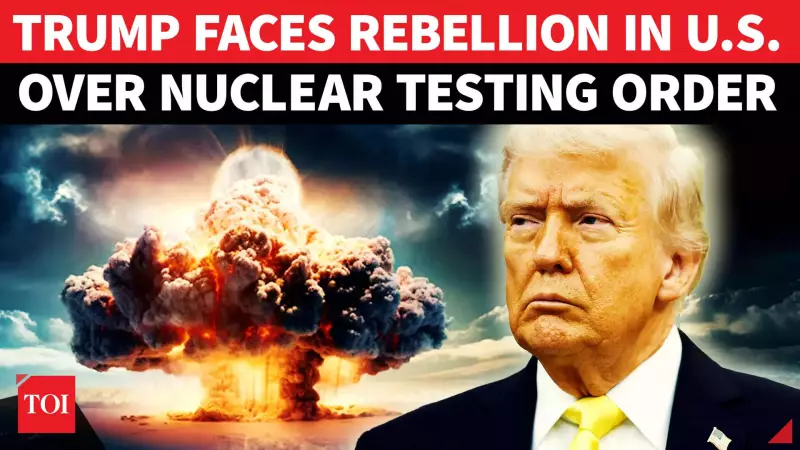
In a stunning revelation that has sent shockwaves through Washington, former CIA and State Department official Larry Johnson has exposed what he calls a major nuclear "blunder" by President Donald Trump that left the administration's own agencies completely blindsided.
Administration Caught Off Guard
Speaking exclusively to TASS news agency, Johnson revealed that President Trump's recent announcement about resuming United States nuclear testing caught key government departments completely by surprise. The Departments of Energy, War, and State were all unaware of the President's intentions before he made his controversial statement.
According to Johnson, who served in both the CIA and State Department, the announcement reflects Trump's impulsive nature and lack of understanding about nuclear policy matters. The former official didn't mince words when describing the President's approach, suggesting he acts with the impulsivity of a teenager rather than the measured consideration expected from the leader of a nuclear superpower.
No Formal Policy Change, Just Confusion
Johnson emphasized that Trump's comments about nuclear testing do not represent an actual shift in US nuclear policy. Instead, he argued, they stem from the President's fundamental misunderstanding of the complex issues surrounding nuclear weapons and international arms control agreements.
The timing of this revelation is particularly significant given the broader context of US nuclear policy. Over the past decade, America's arms control efforts have significantly weakened, creating what many experts consider a dangerous international environment. Johnson's comments highlight how impulsive leadership could exacerbate these existing vulnerabilities.
Limited Immediate Impact
Despite the alarming nature of Trump's announcement, Johnson provided some reassurance by noting that actual live nuclear testing is unlikely to occur before Trump's current term ends in 2029. This timeline suggests that while the rhetoric is concerning, the practical implications may be limited in the short term.
However, the very fact that such a significant announcement could be made without consulting the relevant government agencies raises serious questions about the administration's decision-making processes. The incident occurred on November 12, 2025, adding to the growing list of controversies surrounding Trump's presidency.
The situation becomes even more concerning when viewed alongside other recent developments in US foreign policy, including Trump's freeze on intelligence cooperation with European allies amid rising tensions with Russia. These patterns suggest a broader trend of unilateral decision-making that bypasses traditional government channels and expert advice.





